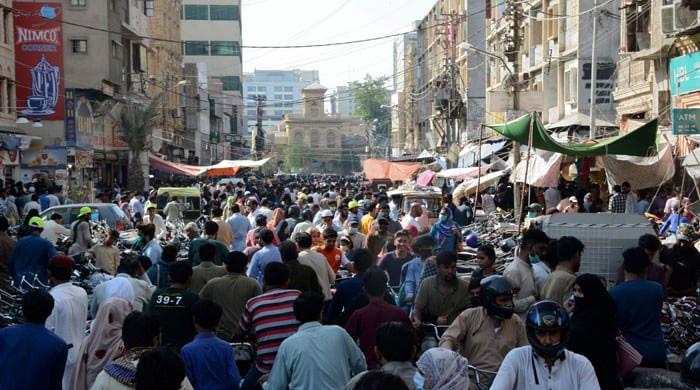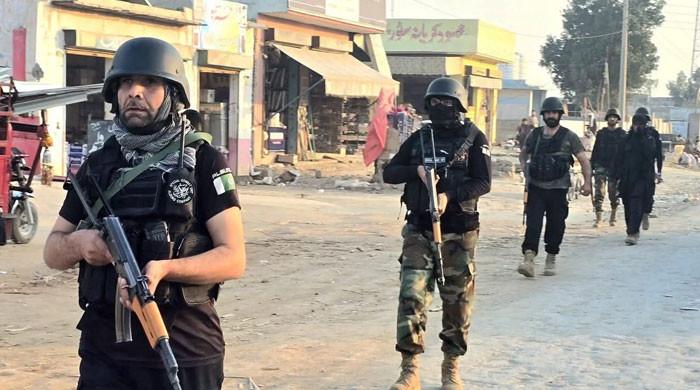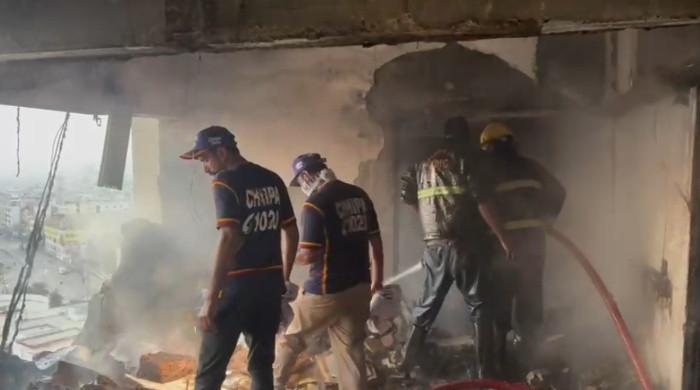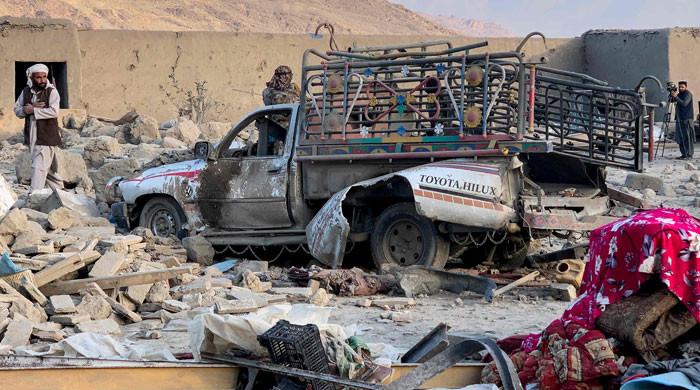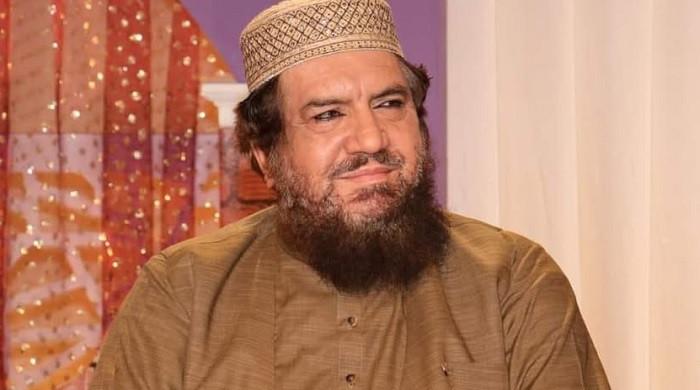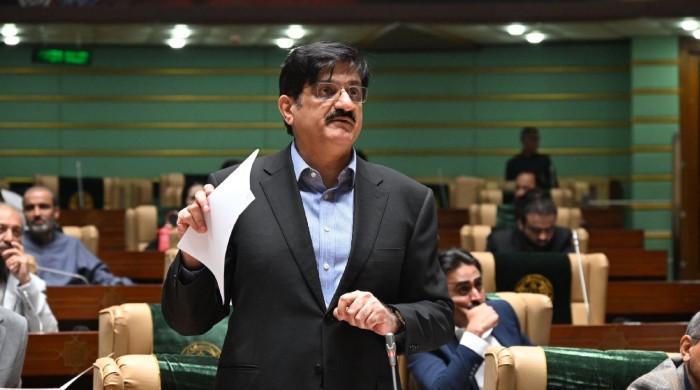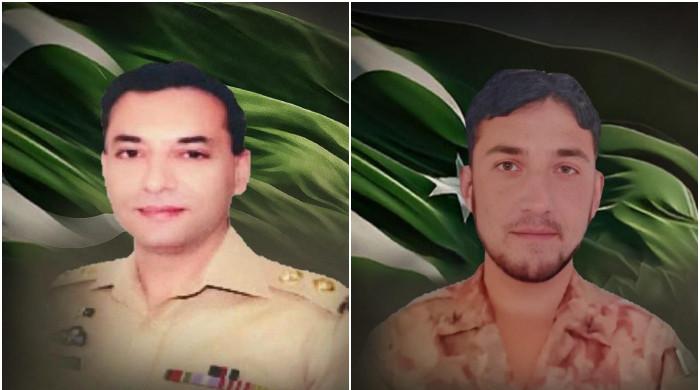Govt to file reference against judge over Musharraf treason verdict
I do not understand what need the judge had to give such an observation: Law Minister Farogh Naseem
December 19, 2019
ISLAMABAD: The government has decided to take legal action against Peshawar High Court Chief Justice Waqar Ahmed Seth over his controversial observation in the detailed judgment of the high treason case sentencing former military dictator Pervez Musharraf to death.
Federal Law Minister Farogh Naseem on Thursday said the federal government had decided to file a reference at the Supreme Judicial Council against Justice Seth for his observation in paragraph 66 of the verdict.
READ MORE: Musharraf treason case: All evidence points to crime of high treason, court says
"He has written that we direct all law enforcement agencies to arrest Musharraf and punish him according to the law. He has further written that if he is found dead, his corpse be dragged to D-Chowk and hanged for three days," said Naseem.
"I do not understand what need the judge had to give such an observation," he said, referring to paragraph 66 of the verdict. The law minister added that Justice Seth was 'unfit'.
"By giving such an observation, Justice Seth has proven that he is mentally unfit," the federal law minister said. "I would like to request the Supreme Court to stop the judge from working."
Naseem also raised a question on the judge's ability to discharge justice in light of his observation of paragraph 66.
"He [Justice Seth] is incompetent and should be restrained from discharging any administrative or judicial duties immediately. We will move this reference with the Supreme Judicial Council very soon," he said.
Federal govt will appeal decision: Shahzad Akbar
Special Assistant to the Prime Minister on Accountability Shahzad Akbar said that he felt ashamed after reading the controversial paragraph.
"My head hung in shame after reading the detailed verdict," he said.
Referring to the special court judge, he said,"You have also taken an oath to obey the law."
Akbar said that it was a "very serious concern and a moment of reflection" as the cases of many other innocents were in the hands of the same judge.
He said that the government had other "serious concerns" over the verdict.
"The government has serious concerns. We think that others should also be included in this case," he said. "Based on these issues and deliberations, the government has decided to appeal the verdict."
In response to Naseem's statement that the other judge hearing the same case had not agreed with paragraph 66, Akbar said, "Whoever wrote this observation is not a friend of Pakistan."
Akbar added that the judge should have interpreted the law and not made a new one instead. "As a student of law, I feel ashamed," he said, referring to the paragraph.
He further said that the verdict had flouted international laws and that it was important to find out how the controversial paragraph was inserted in the verdict. "The mode and manner in which this trial was conducted is suspicious," he said. "Trial in absentia cannot be conducted. However, we saw that it did take place," Akbar said.
He said that the verdict had made Pakistan a laughing stock in front of the whole country. Akbar said that the judge had spoiled the entire case by giving the judgement.
"Should we take steps that cause institutions to clash with one another," he asked.
Akbar said that the government had reservations about how the trial was conducted. He said that a fair trial of the former military dictator should have been held.
High treason case
A special court court had sentenced Musharraf to death on Tuesday for imposing a state of emergency on November 3, 2007, adding that it had found him guilty of high treason in accordance with Article 6 of the Constitution of Pakistan.
The detailed verdict of the court was issued earlier today (Thursday). Dismissing criticism of a trial conducted 'in haste', the special court in its detailed verdict stated that Musharraf had “been afforded more than his due share of fair trial” and “given every opportunity to defend himself”.
The court further said that “the facts of the case are well documented” and “clearly demonstrate guilt on part of the accused”.
"The trial of high treason is the requirement of the Constitution against those individuals who undermine or attempt to undermine the Constitution by any means," the judgement stated.
"This Court after the presentation of undeniable, irrefutable and unimpeachable evidence by the prosecution against the accused reaches to the conclusion that indeed accused [Musharraf] is guilty and deserves exemplary punishment.




